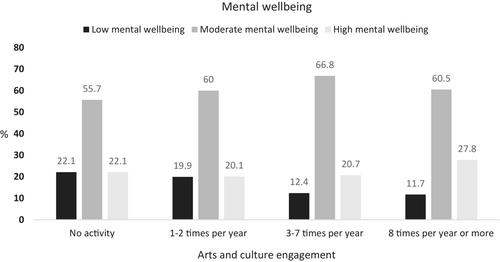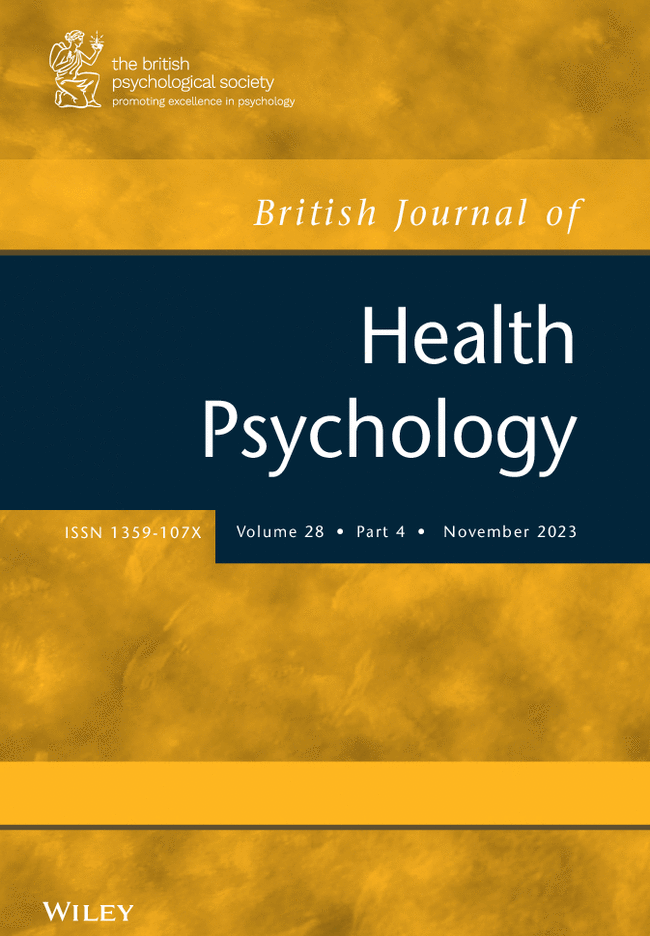Engagement with arts and culture activities in the Danish general population: Longitudinal associations with new onset or persistent depression and mental wellbeing
Abstract
Objectives
International literature suggests that arts and culture activities may benefit mental health, however, such survey studies conducted in the Danish population are scarce. Further, studies have investigated the associated risk for incident depression, but not for persistent depression. The objective of the current prospective study was to assess associations of engagement in arts and culture activities with incident/persistent depression and also mental wellbeing among Danish adults in the general population.
Design
Observational prospective study.
Methods
Data stem from a Danish nationally representative panel study of 5000 adults (aged 15+ years) conducted in 2019 and 2020, which was linked to Danish register data. An exposure variable was constructed for frequency of attending concerts, theatres, museums, and cinemas. Validated scales were used to assess the presence of depression (PHQ-8) and levels of mental wellbeing (SWEMWBS). Binary logistic regression analyses were conducted to assess the risk of incident depression (among participants free of depression at baseline), as well as the risk of persistent depression (among participants with depression at baseline), while multinomial logistic regression was used to assess odds for moderate and high mental wellbeing (low as base outcome) while adjusting for baseline values.
Result
In terms of incident depression, quarterly engagement in arts and culture activities (compared to never) was associated with an OR of .43 (95%CI .23–.80), while 8 times or more was associated with an OR of .53 (.29–.97). In terms of persistent depression, quarterly engagement was associated with an OR of .30 (.10–.90), while 8 times per year or more was associated with an OR of .26 (.07–.92). Similar to the patterns for incident/persistent depression, associations with moderate mental wellbeing showed higher odds for quarterly engagement and 8 times per year or more. Quarterly engagement was also associated with higher odds for high mental wellbeing but did not reach statistical significance.
Conclusions
The results support the involvement of the cultural and creative sectors in health strategies. Mental health promotion initiatives as well as arts and culture sectors may encourage the general public to engage in arts and culture activities with frequencies of at least once per quarter.


 求助内容:
求助内容: 应助结果提醒方式:
应助结果提醒方式:


